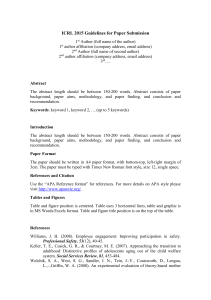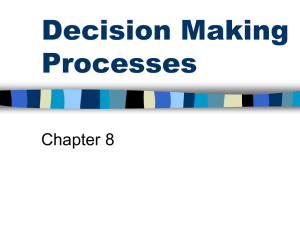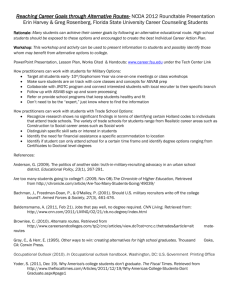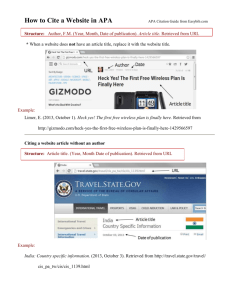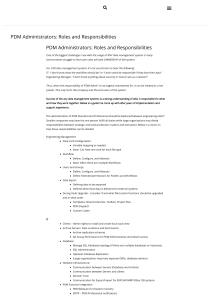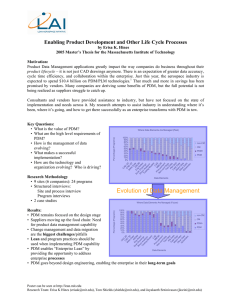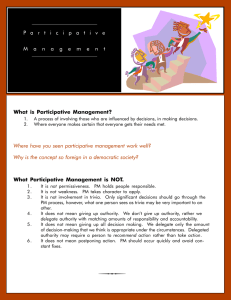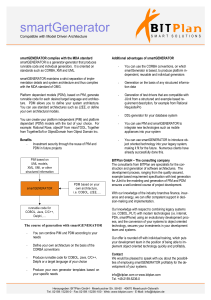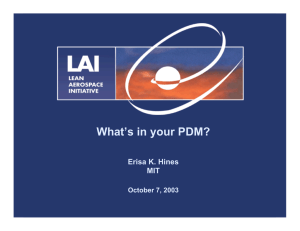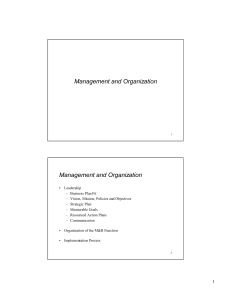File
advertisement
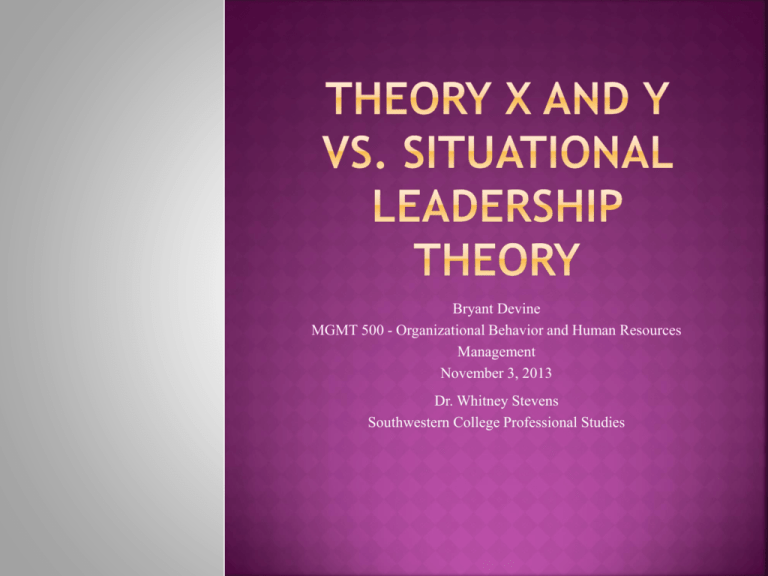
Bryant Devine MGMT 500 - Organizational Behavior and Human Resources Management November 3, 2013 Dr. Whitney Stevens Southwestern College Professional Studies Assumptions: Work is inherently distasteful. Most people are not ambitious, or have no desire for responsibility, and want to be directed. Most people have no capacity for creativity in solving organizational problems. Motivation happens at security and physiological level. People must be controlled and coerced to complete organizational goals Assumptions: Work is as natural as play, if conditions are right. Self control is crucial in achieving organizational goals. The need for creativity while solving organizational problems is evenly distributed. Motivation happens at the esteem, selfactualization, and social levels. Also motivation happens at the security and physiological level. People are able to be creative and self-directed if motivation is appropriate. Both are not polar opposites, or at different ends of the spectrum. Are conducive in analyzing assumptions creates a bias towards Participative Decision Making or PDM. oppressive autocratic leadership style liaise-faire democratic leadership style assumptions are correlated to the amount of PDM four readiness level’s and four leadership style’s dependent on current demands, task behavior, inter team support, or relationship behavior. maturity level is factored into the variables allows leaders to reward and develop their followers Cunningham, R. A. (2011, September/October). DOUGLAS MCGREGOR- A LASTING IMPRESSION. Retrieved from Ivey Business Journal. Hersey, P. B. (2013). Management of organizational behavior: Leading human resources (10th ed.). Prentice Hall. Kouzes, J. M., & Posner, B. Z. (2012). The leadership challenge (5th ed.). San Francisco, California: Jossey-Bass. Pierce, J. L., & Newstrom, J. W. (2011). Leaders and the Leadership Process (6th ed.). New York, New York: McGraw-Hill. Russ, T. L. (2011). Theory X/Y assumptions as predictors of managers’ propensity for participative decision making. Management Decision, 49(5), 823-836. Emerald Group Publishing Limited. Retrieved from Emerald insight. Smothers, J. (2011, July). Assumption-Based Leadership: A Historical Post-Hoc Conceptualization of the Assumptions Underlying Leadership Styles. Journal of Applied Management and Entrepreneurship, 16, 44. Retrieved from https://learn.sckans.edu/courses/1/MGMT500PA2013FALL02PS2/groups/_7762_1// _501789_1/assumption%20based%20leadership.pdf
